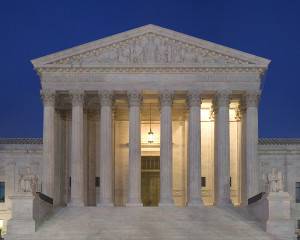
Supreme Court report sheds light on AI’s impact and challenges in legal decisions
The U.S. Supreme Court has recently addressed the growing influence of AI in the legal system, highlighting both its potential benefits and inherent risks, as per a recent Mashable report. In the 2023 Year-End Report on the Federal Judiciary, Chief Justice John G. Roberts, Jr. provided a comprehensive overview of AI’s role in the U.S. legal landscape, comparing its impact to that of past technological advancements like personal computers.
Chief Justice Roberts acknowledged the advantages AI can offer, particularly for those unable to afford legal representation. AI-driven tools can provide accessible assistance with basic legal queries, including locating templates, filling out court forms, and understanding procedural aspects, all from the comfort of one’s home.
However, Roberts also expressed concerns about the risks associated with AI, especially when applied inappropriately in judicial decision-making. He emphasized that many decisions in the legal system require human judgment, discretion, and an understanding of nuances that algorithms might not capture. The potential for inadvertent bias in AI models, along with a public perception of a “human-AI fairness gap,” further complicates the matter. Roberts pointed out that in criminal cases, AI’s role in assessing flight risk and recidivism has raised questions about due process, reliability, and bias.
While acknowledging that AI can help resolve cases in a just, speedy, and inexpensive manner, Roberts cautioned against its indiscriminate application. He stressed the need for courts to carefully consider AI’s appropriate uses in litigation as the technology continues to evolve.
Roberts confidently predicted that human judges would continue to play a crucial role in the judiciary. However, he also foresaw significant changes in judicial work due to AI, both in how judges perform their duties and in their understanding of AI’s role in cases.
The legal profession in the U.S. has already seen the impact of AI, albeit with mixed results. Instances of lawyers being fined for citing non-existent cases generated by AI chatbots like OpenAI’s ChatGPT and Google Bard highlight the challenges of over-reliance on AI in legal proceedings. These cases underscore the importance of legal professionals understanding AI’s capabilities and limitations.
AI’s application in the legal field extends beyond the courtroom. Online legal services, AI-driven contract negotiations, and even AI-assisted legislative drafting are becoming increasingly common. However, these developments also bring the risk of incorporating AI’s biases into legal processes.
The Supreme Court’s report serves as a reminder of the need for a balanced approach to integrating AI into the legal system. While AI offers promising tools for enhancing legal services, its use must be tempered with caution to avoid dehumanizing the law and compromising the justice system’s integrity.




